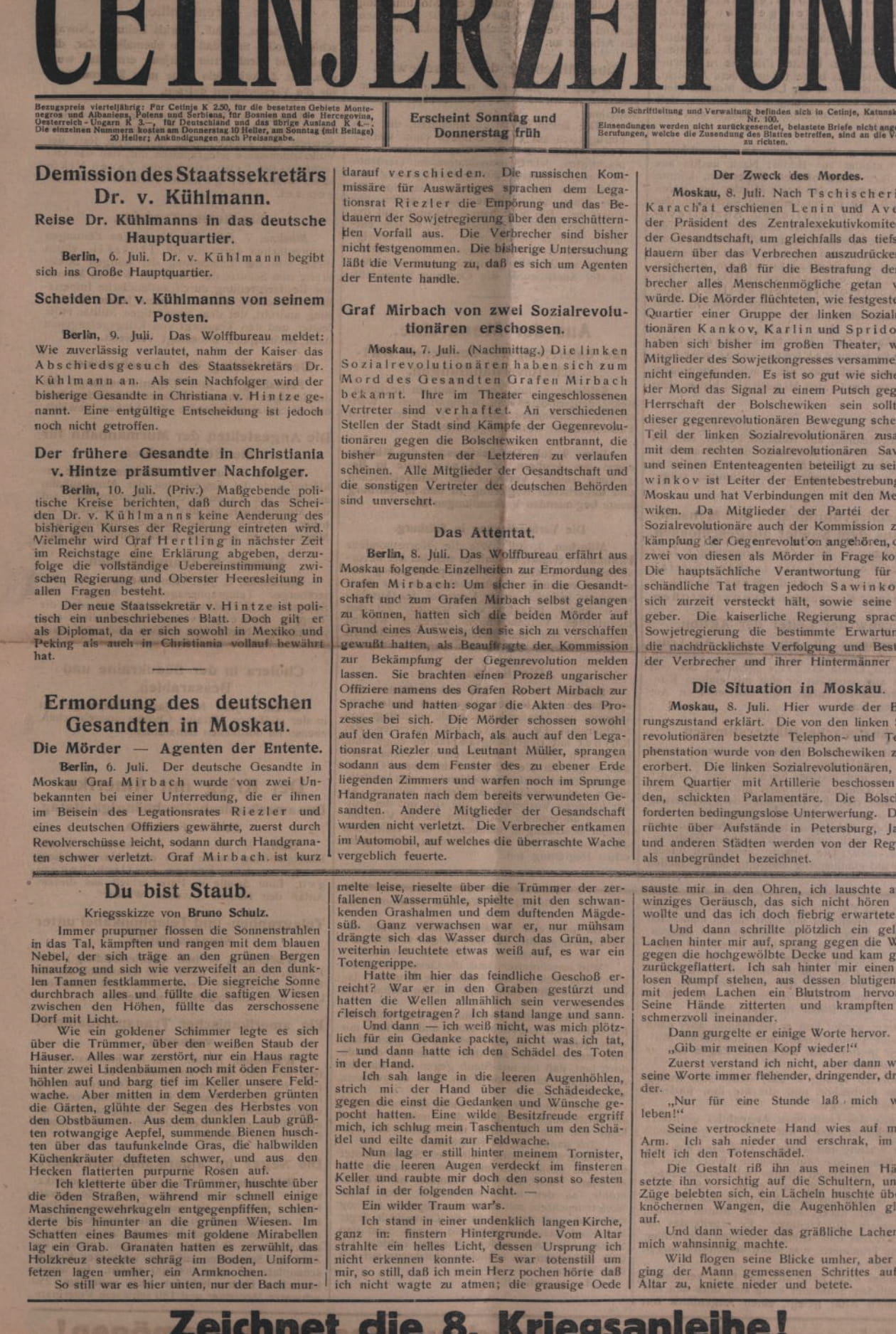Schulzowska „teoria obrazu” w interpretacji Anny Juraschek
Bruno Schulz’s Idea of Image/Picture in the Interpretation by Anna Juraschek
Author(s): Katarzyna LukasSubject(s): Aesthetics, Comparative Study of Literature, German Literature, Polish Literature, Book-Review
Published by: Fundacja Terytoria Książki
Summary/Abstract: The article is a review of and a discussion with the recent monograph by Anna Juraschek, Die Rettung des Bildes im Wort. Bruno Schulz’ Bild-Idee in seinem prosaischen und bildnerischen Werk, Göttingen 2016. Juraschek has put forward the following thesis: alongside his own specific philosophy of language expressed in his narrative works and essays, Bruno Schulz also suggests a particular philosophy of image/picture, which he develops in his visual art. This “program” is not specified and may be reconstructed only by interpreting his graphic works; it is, however, corroborated by the poetics of Schulz’ stories. Juraschek regards the “word” and the “image” in Schulz as artistic entities, and emphasizes the visual nature of his fiction and the narrative qualities of his graphic works. She points at Schulz’s crossing of the boundaries between different arts and claims that the writer criticizes the very notion of mimesis (a statement that, according to the reviewer, may be questioned). Juraschek tries to reconstruct the main sources inspiring Schulz’s idea of image/picture: the classic European painting, German literature (i.e. Leopold von Sacher-Masoch and Joseph von Eichendorff), as well as German philosophers and cultural critics such as Walter Benjamin. According to the reviewer, there are three points that Juraschek’s study can contribute to Schulz studies. First, the German scholar succeeds in systematizing different kinds of verbo-visual relations and interactions in Schulz’s oeuvre. Second, she fully appreciates his graphic work which thus far seems to have been undervalued, especially by Polish scholars. Last but not least, Juraschek brings to the fore some striking affinities between the ideas of Schulz and those of Walter Benjamin. As a possible background of interpreting Schulz, the philosophical writings of Benjamin are a context which certainly deserves more investigation.
Journal: Schulz/Forum
- Issue Year: 2020
- Issue No: 15
- Page Range: 231-240
- Page Count: 10
- Language: Polish

